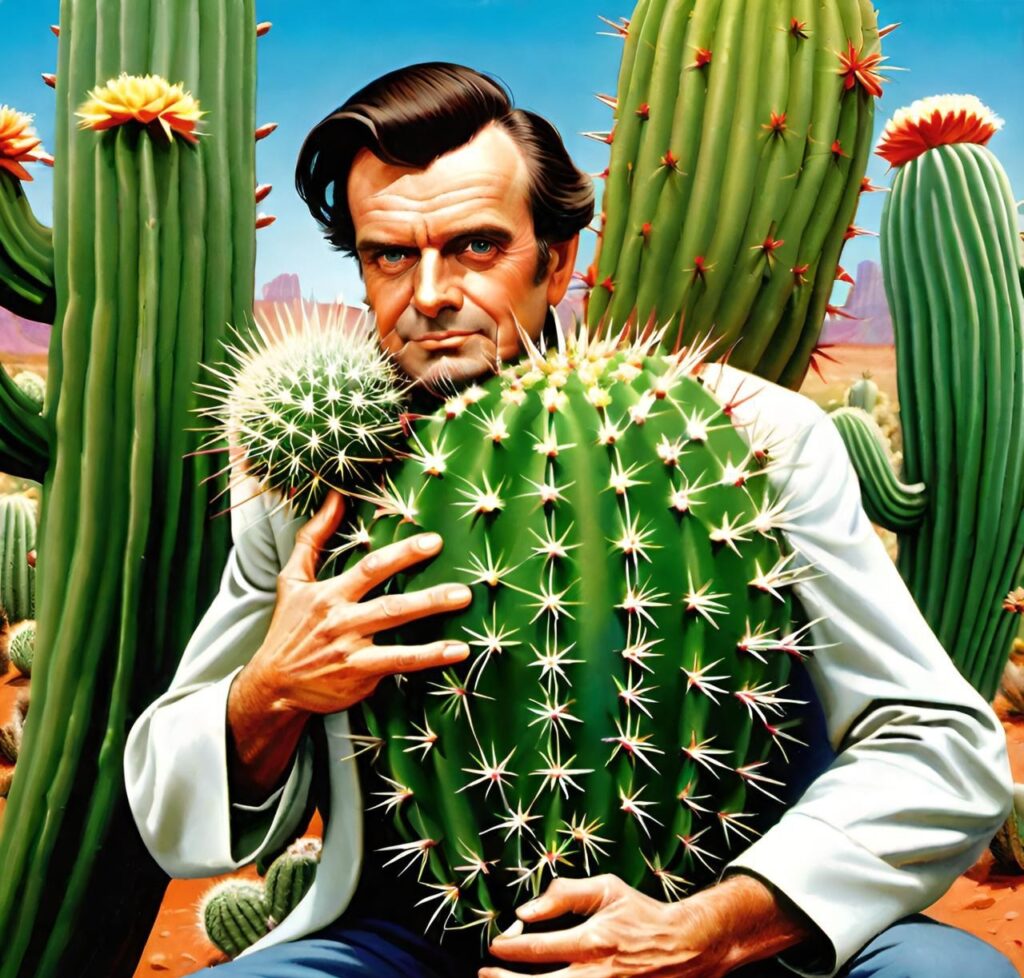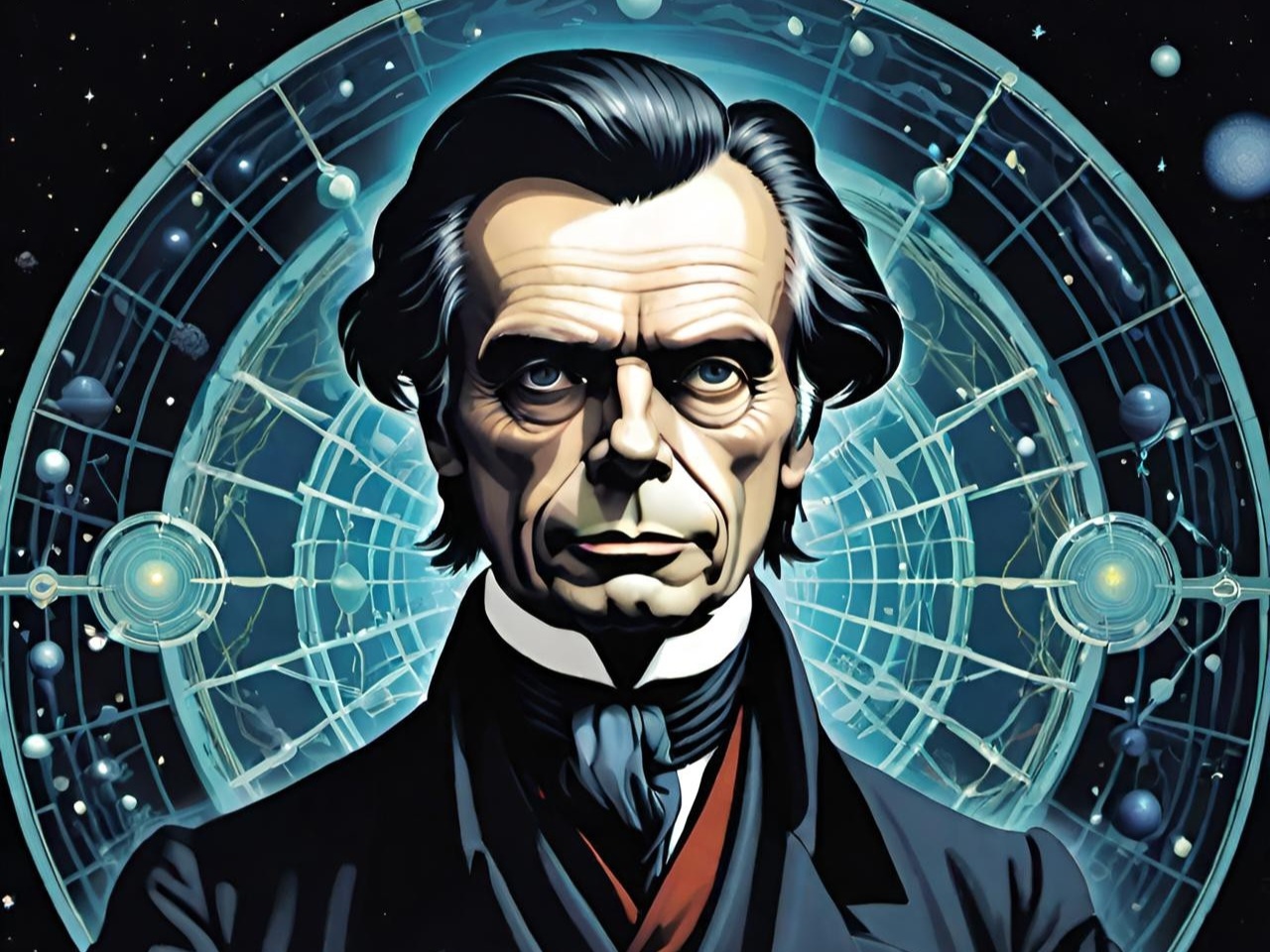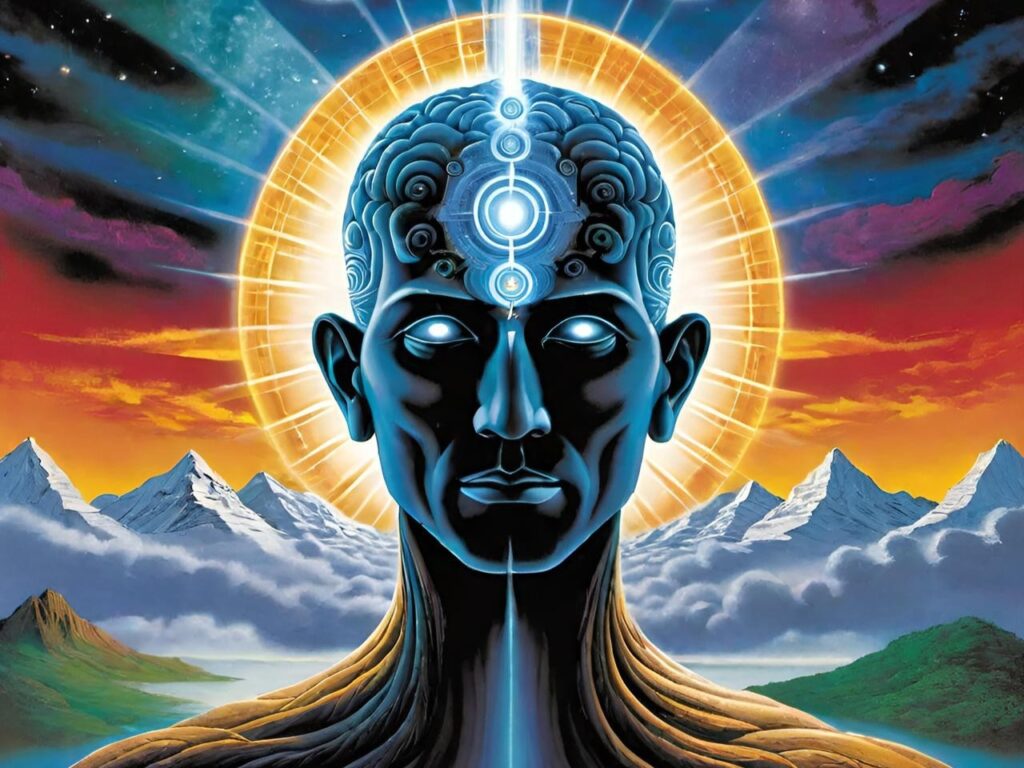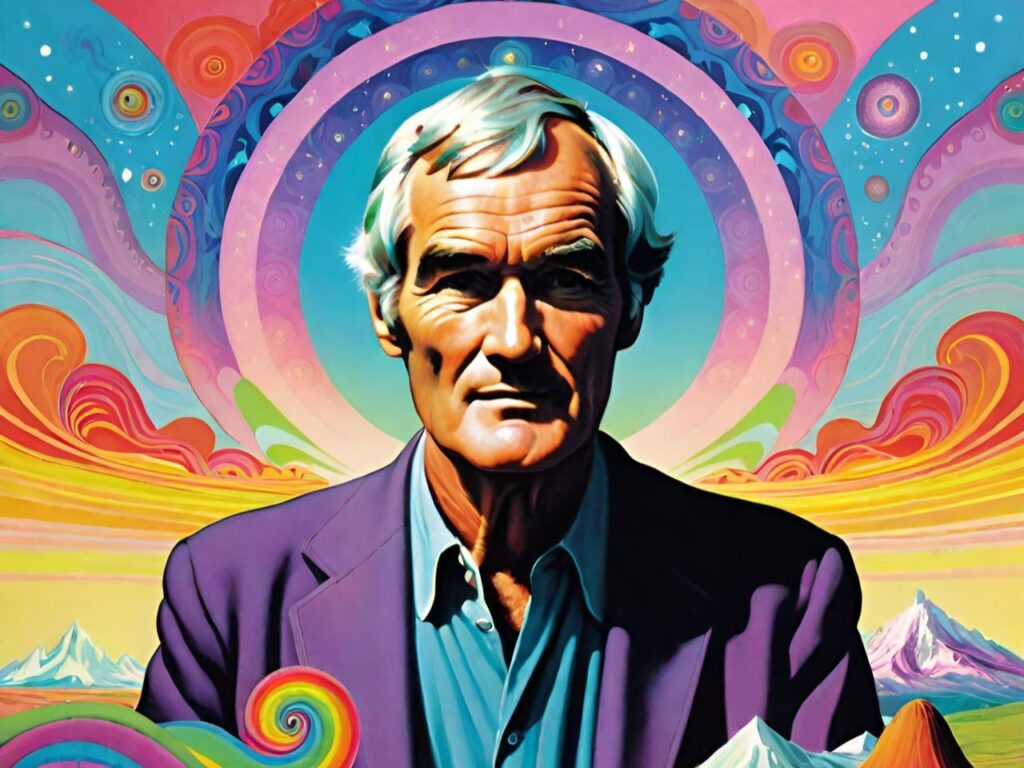Aldous Huxley, a towering figure in the world of literature and philosophy, embarked on a profound spiritual journey that was both controversial and enlightening. Best known for his dystopian novel, “Brave New World,” Huxley’s exploration of the human mind and consciousness took a pivotal turn when he encountered mescaline, a psychoactive alkaloid found in the peyote cactus. His experiences with mescaline, documented in the seminal work “The Doors of Perception” (1954), marked a significant phase in his life, influencing his philosophical outlook and literary creations.
Huxley’s foray into the realm of psychedelic substances was driven by a deep-seated quest for transcendence and a better understanding of the mind’s potential. Mescaline, as Huxley discovered, acted as a key that unlocked the doors to a perception of reality far removed from the ordinary. It was a journey that took him beyond the superficial layers of the material world, offering glimpses into what he perceived as the essence of existence itself.
The Doors of Perception
“The Doors of Perception” narrates Huxley’s mescaline experience with a blend of scientific inquiry and poetic reflection. He describes the profound alterations in perception, the intensification of colors, the beauty in mundane objects, and the sense of profound insight into the nature of the universe. But beyond the sensory enhancements, Huxley’s narrative delves into the philosophical implications of his experience. He posits that ordinary consciousness filters reality, a necessary mechanism for survival, but one that also shuts out the full spectrum of potential experience.
Huxley’s journey through mescaline was not merely an experiment in altered states of consciousness; it was a spiritual quest. He was deeply influenced by mystical literature and the philosophies of Eastern religions, which resonated with his own experiences under the influence of mescaline. He saw these psychedelic experiences as a means to achieve a mystical union with the larger universe, akin to the ultimate goal of many spiritual traditions.

Critics, Support and Impact
Critics and supporters alike have debated the significance of Huxley’s mescaline experiments. Some hail his work as a groundbreaking exploration of consciousness and a call to expand our understanding of the mind. Others view it with skepticism, questioning the value of insights gained through chemical means. However, Huxley’s own perspective was clear. He regarded substances like mescaline not as ends in themselves but as tools for spiritual exploration, capable of providing a temporary glimpse into a broader, more profound reality.
“The Doors of Perception” and its companion piece, “Heaven and Hell,” have left a lasting impact on the cultural and intellectual landscape. Huxley’s mescaline journey influenced a generation of writers, artists, and thinkers and contributed to the psychedelic movement of the 1960s. His work continues to be a reference point for discussions on the nature of consciousness, the potential of the human mind, and the quest for meaning beyond the material world.

Conclusion
Aldous Huxley’s journey through mescaline was an intruiging spiritual odyssey that he shared with the world. It stands as a testament to his unyielding curiosity and his commitment to exploring the vast, uncharted territories of the human psyche. Through his experiences, Huxley not only expanded his own consciousness but also challenged us to reconsider the boundaries of our understanding and the potential for spiritual awakening in the modern age.




